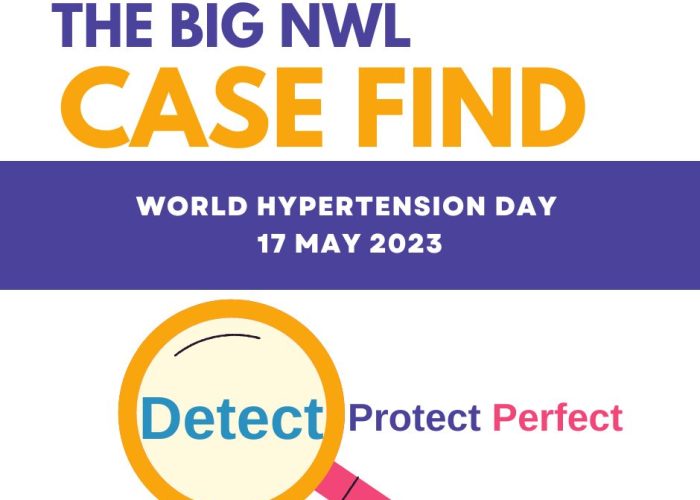Half a million people in UK living with undiagnosed heart rhythm disorder still at risk of stroke
Four thousand strokes were prevented in England between 2015 and 2016 due to the increased use of anticoagulant drugs amongst patients with a common heart rhythm disorder, according to new analysis part-funded by British Heart Foundation (BHF), and published in the European Heart Journal (EHJ)
Atrial fibrillation (AF) affects around 1.2 million people in the UK, with 500,000 people believed to be living undiagnosed and unaware that they are at a 5-fold higher risk of stroke compared to those unaffected.
The BHF say the findings highlight the urgent need for better screening and diagnosis of AF to ensure patients receive the clot-busting treatment which could prevent a devastating stroke.
A BHF-funded team from the University of Leeds used national data and insight provided from ICHP1 to analyse the known patients with AF, episodes of stroke2, new AF diagnoses and the use of anticoagulants amongst high risk patients between 2006 and 2016.
They found that, since 2009, the number of people with AF who are being treated with anticoagulants has more than doubled.
The researchers estimate that, had the uptake of anticoagulants stayed at 2009 levels, there would have been around 4,000 more strokes in patients with AF in England in the 2015/16 financial year.
Stroke is the fourth biggest killer in the UK and the leading cause of disability and in 2016, killed almost twice as many women as breast cancer.
Atrial fibrillation is the most common type of irregular heartbeat; it causes the heart’s chambers to beat in an uncoordinated, irregular manner. AF can cause blood to pool in the heart, which can form into a blood clot. It this clot travels to the brain it can block the blood supply, leading to a stroke.
AF contributes to between 20-30 per cent of all strokes, and treating these patients with anticoagulants – drugs which slow the formation of blood clots – can cut patients’ risk of stroke by two thirds.
The researchers say the increase in uptake is likely thanks to efforts across the health service to educate patients and doctors about the benefits of anticoagulation, changes to guidelines in the UK and Europe, and new types of anticoagulants which provide a safer and more convenient alternative to warfarin, which requires consistent monitoring and an added risk of major bleeds.
Worryingly, one in five diagnosed high risk AF patients are not currently taking anticoagulants.
The researchers note limitations including that the data came from a number of sources, and they were unable to track individual patients and include all possible confounders. They also point out that the study shows an association, and cannot prove causation.
Professor Chris Gale, Professor of Cardiovascular Medicine and Honorary Consultant Cardiologist at the University of Leeds, who co-authored the study, said:
“Sudden strokes in people who have AF are unnecessarily common. Treatments which prevent AF-related strokes are saving lives, but there are still many thousands of people in the UK living with undiagnosed AF who are missing out.
“The risk of AF rises dramatically with age. Our ageing population makes it clear that without intervention, cases of AF and associated strokes are only going to increase. It’s a truly preventable public health crisis, and we need to step up.”
Professor Sir Nilesh Samani, Medical Director at the British Heart Foundation said:
“This study demonstrates the real benefits to patients when research evidence is put into practice.
“The increased use of anticoagulants in patients with AF and the fall in the expected number of strokes is a major success story – we are on the right path – but much more needs to be done. There are still half a million people in the UK with ‘silent’ AF, who have no idea they’re at risk of having a stroke.
“Spotting AF can be surprisingly easy; often all it takes is a simple pulse check. A normal heart beat will feel regular, but if you find yours is irregular or random, go and see your GP. It could save your life.”
Healthcare innovation
The BHF has funded specialist nurse posts called arrhythmia care coordinators to improve the outcomes of people who have arrhythmias. The programme has prevented thousands of hospital admissions and was adopted as a NICE Quality Innovation and Productivity case study. We are now supporting services across all four nations to understand and adopt innovative practices to improve the detection and management of atrial fibrillation.
ENDS
To request interviews or for more information please call the BHF press office on 020 7554 0164 (07764 290 381 – out of hours) or email newsdesk@bhf.org.uk
Notes to editors:
- The researchers used anonymised data from nationwide HES (hospital Episode Statistics) the Quality and Outcomes Framework (QOF) between 2006 and 2016 to make the estimates. Imperial College Health Partners and Harvey Walsh provided aggregated HES data and provided insight into how it could be used for the research.
- Aggregated weekly counts of the number of finished consultant episodes with a primary diagnosis of stroke (ischaemic, haemorrhagic or unspecified) and secondary diagnosis of AF.
British Heart Foundation
For over 50 years we’ve pioneered research that’s transformed the lives of people living with heart and circulatory conditions including stroke.
Find out more at bhf.org.uk



